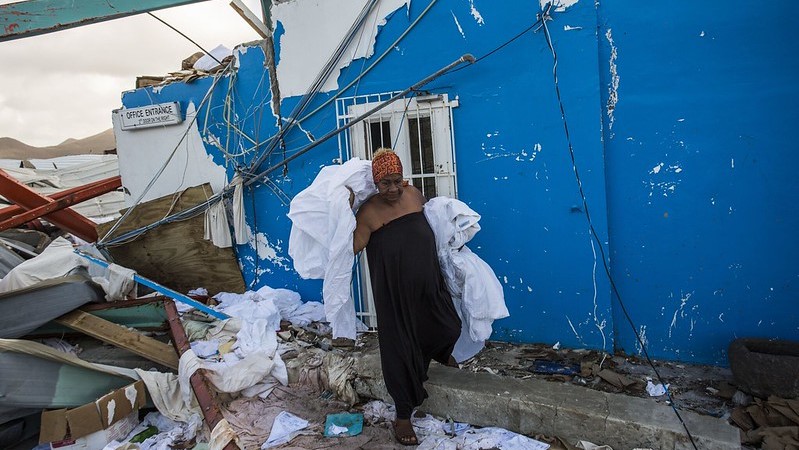Germany and Cop host UAE led contributions to get a fund for climate victims up and running, in an early win for the Cop28 presidency
Governments have collectively pledged more than $400 million to establish a loss and damage fund for the victims of climate disaster.
On day one of UN climate talks in Dubai, negotiators rubber-stamped plans to get the fund up and running. The arrangements had been hashed out by a transitional committee over five fraught meetings in the past year.
The Cop28 president Sultan Al Jaber hailed the decision as “historic”, with a broad smile, after watching delegates burst into a round of applause.
“This sends a positive signal of momentum to the world and to our work here in Dubai,” he added.
Initial pledges
Following the text’s adoption, a handful of countries promised contributions to the start-up phase of the fund. Germany and Cop28 hosts the United Arab Emirates committed $100 million each, followed by the United Kingdom (£40m or $50.5m), the United States ($17.5m) and Japan ($10m).
EU member states, including Germany, are expected to collectively deliver at least €225m ($245m).
The relatively paltry contribution from the US – the world’s largest economy – attracted immediate criticism. Mohamed Adow, director of Power Shift Africa, called it “embarrassing.
Avinash Persaud, special envoy to Barbados prime minister Mia Mottley and a member of the transitional committee, welcomed the “hard-fought historic agreement”. But he said the pledges were unlikely to represent new and additional resources.
“Because the fund was only approved today, we can’t expect [them] to open up new budgets… so this initial money will be coming from existing budgets,” he told a press huddle, as reported by Carbon Brief’s Josh Gabbatiss.
How the fund will work
Significantly more money will be needed to help vulnerable communities benefit from the new mechanism once it gets up and running. The fund is designed to receive contributions “from a wide variety of sources”, including grants and cheap loans from the public and private sectors, and “innovative sources”.
The World Bank is set to initially host the fund for four years, despite strong resistance to its involvement from developing countries.
All developing countries “particularly vulnerable” to the effects of climate change will be eligible to benefit from the mechanism. However, the definition of vulnerability – one of the thorniest issues – is not detailed in the text.
The agreement is an “early win” for the Cop28 hosts, as it sets the start of the conference on a positive collaborative tone, Ana Mulio Alvarez, a loss and damage expert at E3G, told Climate Home.
Speaking at the plenary session, several negotiators underlined the difficult compromises needed to strike a deal.
Compromise deal
Developing countries had initially opposed a role for the World Bank, airing concerns over high costs, slow procedures and the US influence on the institution. But they eventually relented and accepted a compromise, with certain con
Read More

